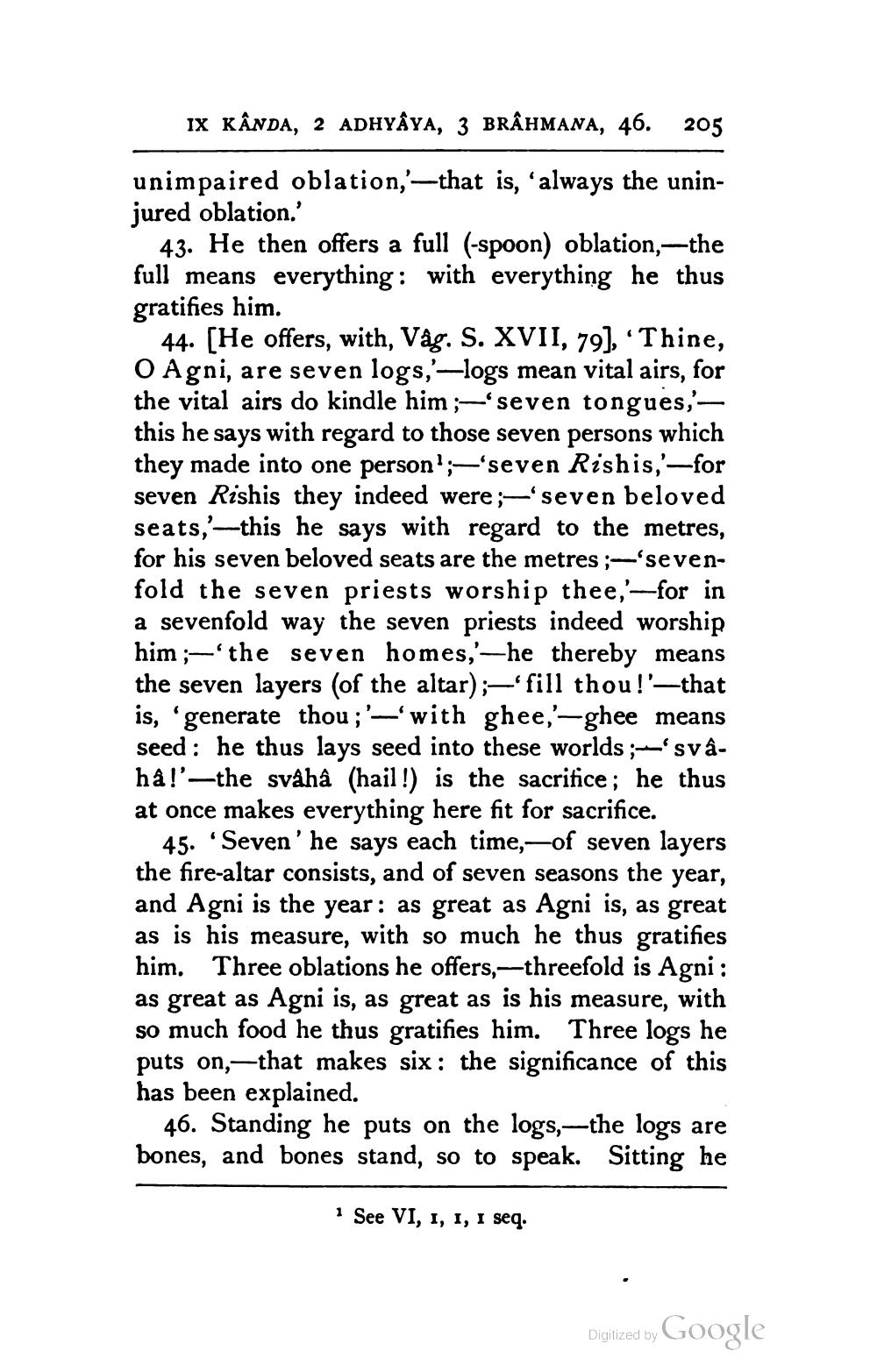________________
IX KANDA, 2 ADHYÂYA, 3 BRÂHMANA, 46. 205
unimpaired oblation,'—that is, ‘always the uninjured oblation.'
43. He then offers a full (-spoon) oblation, the full means everything: with everything he thus gratifies him.
44. (He offers, with, Våg. S. XVII, 79), "Thine, O Agni, are seven logs,'-logs mean vital airs, for the vital airs do kindle him ;-seven tongues,'— this he says with regard to those seven persons which they made into one person?;-'seven Rishis,'—for seven Rishis they indeed were ;—'seven beloved seats,'--this he says with regard to the metres, for his seven beloved seats are the metres ;-'sevenfold the seven priests worship thee,'-for in a sevenfold way the seven priests indeed worship him ;-'the seven homes,'-he thereby means the seven layers (of the altar);—'fill thou!'—that is, 'generate thou; '—'with ghee,'-ghee means seed: he thus lays seed into these worlds ;-'svâha!'--the svåhà (hail !) is the sacrifice; he thus at once makes everything here fit for sacrifice.
45. Seven' he says each time,-of seven layers the fire-altar consists, and of seven seasons the year, and Agni is the year: as great as Agni is, as great as is his measure, with so much he thus gratifies him. Three oblations he offers,-threefold is Agni: as great as Agni is, as great as is his measure, with so much food he thus gratifies him. Three logs he puts on,—that makes six : the significance of this has been explained.
46. Standing he puts on the logs,—the logs are bones, and bones stand, so to speak. Sitting he
1 See VI, I, I, I seq.
Digitized by Google




